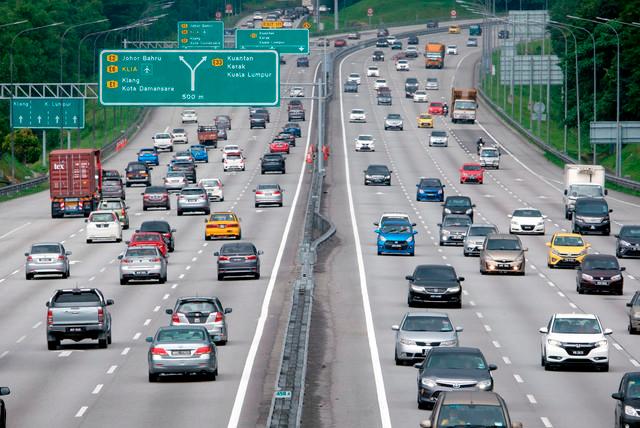VEHICLES for use on public roads must have valid road tax, regardless of how often they are on the road. In addition, on our tolled highways motorists pay according to usage and class of vehicle.
Rates for road tax differ according to engine size and type of fuel. For private registrations, road tax for company-owned vehicles can be two or three times higher than that for individually-owned vehicles, and different rates apply for various types of commercial vehicles.
Weirdly, road tax rates for SUV, MPV and pick-up trucks for private use are lower than that of saloon cars, and are the same whether they are individual or company-owned.
Some vehicles registered in the peninsula have their road tax renewed in Sabah or Sarawak, to take advantage of lower rates.
For sure, the entire mechanism used for charging road tax is messy. Perhaps, the organised chaos which continues to confuse the public, started with the 1983 Budget announced in October 1982.
That year, road tax was raised considerably. For example, a company-owned five-litre petrol engine car was subject to RM36,000 road tax a year, and so was a company-owned three-litre diesel engine car. Many Mercedes 300D cars were converted to petrol and transferred to individuals.
But road tax for limousine taxis was only 12 sen per cubic centimetre (cc) for petrol engines and 44 sen for diesel engines.
As such, road tax for a 3,000cc petrol engine limousine was only RM360 per year, while for a diesel engine it was RM1,320.
Naturally, many people applied for “Kereta Sewa Pandu Sendiri” or “Teksi Limousin” permits. Some of the successful applicants managed to license their Rolls Royce as limousine taxi to enjoy cheap road tax and saved tens of thousands of ringgit every year.
Road tax for private cars with diesel engines were raised four times higher than those with petrol engines, and doubled for company-owned vehicles over individual ownership. For decades, diesel fuel was much cheaper than petrol.
Today, the price of diesel is normally between the price range of RON95 and RON97.
In any case, charging road tax based on engine size is certainly not equitable and should not be continued, more so when engine size does not necessarily equate to power output. Many cars sold today are fitted with small engines that are turbocharged and can deliver twice the horsepower of normally aspirated engines. Even as far back as the late 1960s, Nissan tour buses imported from Japan were using powerful supercharged two-stroke diesel engines.
Today, hybrid cars drawing power from an engine and large lithium-ion battery are common, while hydrogen vehicles are rare, limited by fuel supply. Tomorrow, electric vehicles will be just as popular as those with internal combustion engines.
Hence, charging road tax based on power output, whether measured by horsepower (hp) or kilowatt (kw), would be fairer. But then again, the speed limit for a Perodua Kancil with 31hp or 23kw is the same as a BMW M5 with 600hp or 441kw.
Therefore, the most equitable method to levy road tax should be based on vehicle weight. The same engine may be used for a saloon, SUV, MPV or pickup truck, but road tax should be based on the pressure exerted by the tyres that cause wear and tear on our roads, apart from spillage such as diesel and concrete.
The proposed method should apply to all individually-owned vehicles. If more tax is to be extracted from company-owned vehicles, it can be doubled or set to whatever percentage.
As buses are public service vehicles, their rates should only be a fraction of other commercial vehicles.
Heavy trucks should be charged based on the maximum permissible laden weight, as they cause the most damage to our roads.
Owners of vehicles which are overloaded must also be made to pay for road repairs, apart from being slapped with stiff fines and penalties.
Finally, road tax on vehicles using our roads, bridges and elevated highways should be based on vehicle weight. It should not be an “engine tax” based on engine size or type of fuel or without road tax if there is no engine as in electric vehicles.
It is illogical that road tax for SUV, MPV or pickup trucks are lower than saloons with similar-sized engines, as they are not only heavier but occupy more space. People often wonder if there could have been an ulterior motive or interesting explanation behind the move.
Comments:letters@thesundaily.com









